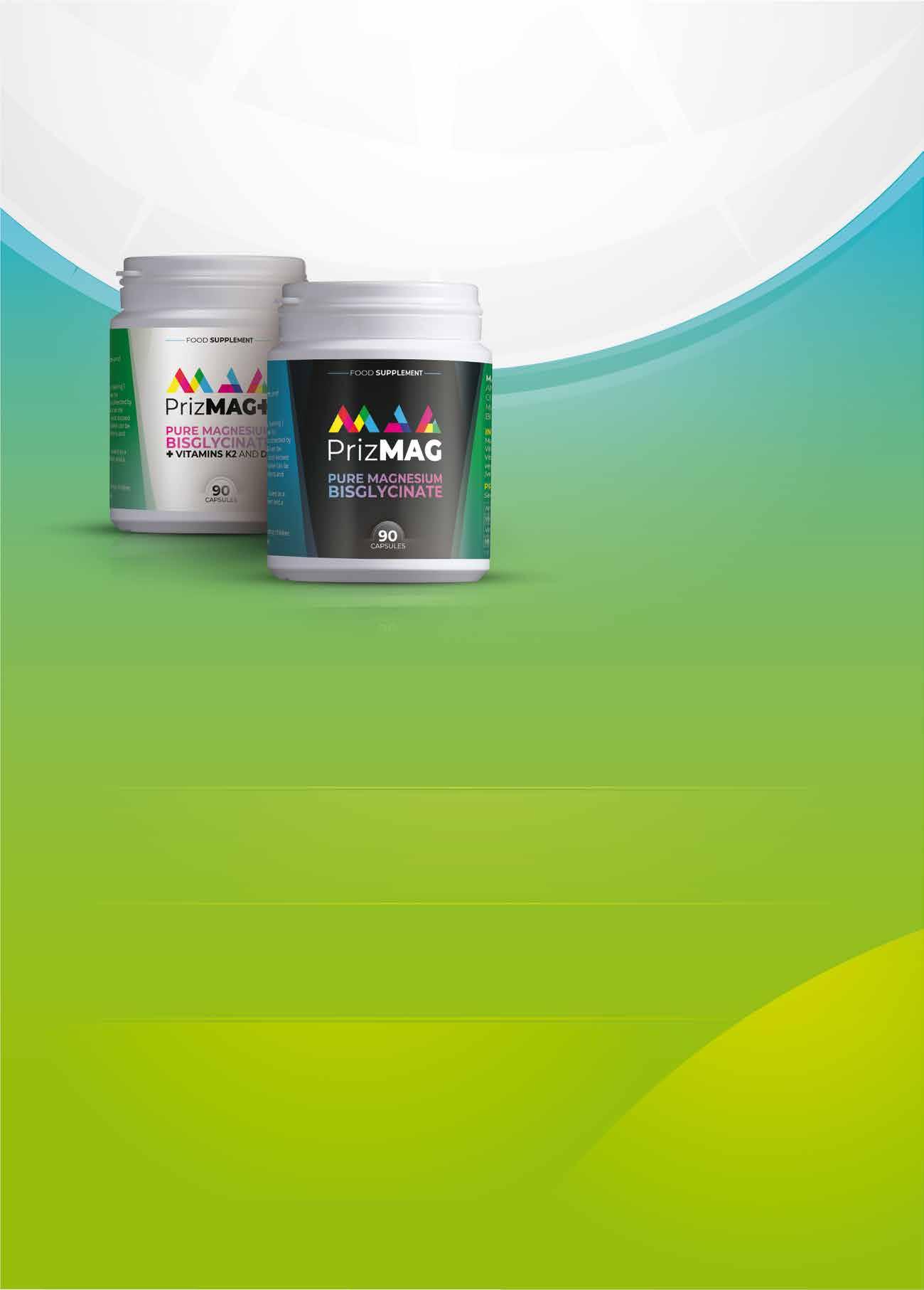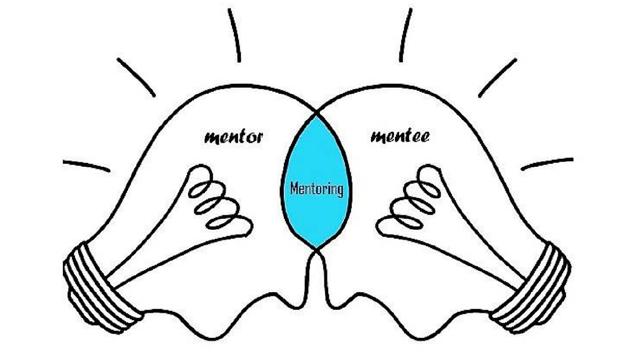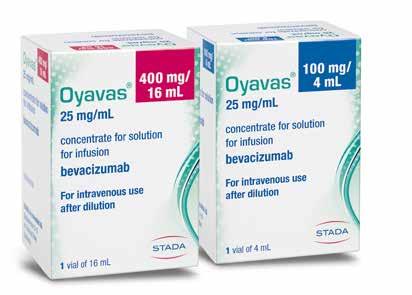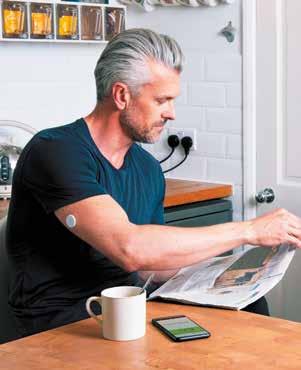
45 minute read
BUSINESS CPD
The Future of Pharmacy - Part 3
LEARNING OUTCOMES
At the end of article, you will be able to…
• Explore how 4Front’s 6Ps of Pharmacy Excellence model can support pharmacists to navigate the synergies and potential conflicts of interest between professional practice and business excellence • Discuss ‘Professionalism’ in a Pharmacy context • Identify drivers that increase the likelihood of exemplary
Professional Performance • Identify drivers that increase the risk of poor Professional Performance • Recognise ONE key factor that underpins Professional Excellence • Describe ways to grow your capacity to navigate professional dilemmas with confidence and care • Prioritise your highest value activities • Take action
INTRODUCTION:
In Part 1 (July 2021) of ‘The Future of Pharmacy,’ Business CPD Series, we identified 4Front’s
Personal Leadership pillar
as the foundation of Pharmacy Excellence. In Part 2 (August 2021), we discussed how mastery of 4Front’s Promotion pillar amplifies your ability to promote the value of health, the value of pharmacy, the value of your products and services, and the value of your professional expertise. In Part 3 we focus on 4Front’s Professional pillar. What does ‘Professional’ means in in the context of 4Front’s 6Ps of
Pharmacy Excellence?
What drives the quality of your professional performance? How does mastery of 4Front’s Professional pillar lift performance in the other 5Ps? Where is the best place to focus to continually grow and develop your professional performance in a way that honours the PSI Code of
Conduct, enhances patient care, increases your confidence, integrity and reputation, and future proofs your career, your business and our profession? Professional Excellence is a key pillar of Pharmacy Excellence, because this is the basis on which public trust in pharmacy and pharmacists is founded. Exemplary professional performance requires an ever growing ability to trust in the quality and integrity of your professional judgement, act
with the patients’ best interest at heart, create physically and psychologically safe working environments and be accountable for upholding, reviewing and upgrading your standards and actions, individually and collectively. P – To honour the first principle of the PSI’s Code of Conduct for Pharmacists (Put the Patient First), you must create opportunities for YOUR needs to be recognised, assessed and responded to. Furthermore, this process must ensure that your dignity is preserved and your values respected. Regular, scheduled, personal reflection (with the support of a coach, mentor or super-visor) provide IPN’s Pharmacy Business Excellence Series is for community a confidential space to increase pharmacists committed to growing their professional and your awareness of the factors business knowledge and skills to overcome challenges and thrive as a community pharmacist. that impact your decision making process, shine a light on your assets and your blind-spots, and IPN is proud to partner with 4Front Pharmacy to bring you the help you to recognise (and act ‘IPN/4Front Pharmacy Business Excellence Series.’ upon) early warning signs which, if unaddressed, could compromise In this series, you will apply 4Front’s 6P’s of Pharmacy Excellence your professional performance. It to navigate the ‘Future of Pharmacy.’ also helps you to recognise and 4Front’s 6P’s of Pharmacy Excellence are manage any conflicts of interest, including commercial incentives, 1. Personal Leadership which could compromise your professional judgement or patient 2. Professional Practice care. Lack of regular, intentional reflection, mentoring and/or 3. Person-Centred Care (Patients/Customers/Staff/Other super-vision increases the risk
Healthcare Professionals) of poor professional judgement, 4. Products and Services with decisions coloured by unconscious bias, self-protective 5. Promotion survival instincts, self-doubt and/or insufficient self-care. (Personal) 6. Prosperity (Profit and Time) P – Several principles of Each month, Rachel Dungan ‘The Pharmacist Coach,’ guides you the PSI’s Code of Conduct for to apply 4Front’s 6Ps of Pharmacy Excellence Framework to create your pharmacy future. While Rachel is the creator of this framework and the author of these articles, YOU are the author of your career, your future. The future of pharmacy is in your hands, in your heart, in your head. Pharmacists relate to how we relate to others. This includes Principle 1: Put the Patient First, Principle 3: Communicate Effectively, Principle 4: Work with Others, Principle 5: Show Your mission, should you choose to accept it, is to use this framework as a guide to Leadership. These Principles are enabled by Principle 6: Maintain Competence and Principle 7: Be • (re)activate your inner scientist, so you run the experiments Open and Honest, when we focus required to take your next bold move towards an ever more our Professional Development on compelling future learning how to create a ‘Sage’ driven (Shirzad Chamine) growth• develop mastery as you embrace your challenges and focused workplace culture that opportunities is open and honest, amplifies individual and collective strengths • take PRIDE in what you do as you create an ever more and encourages synergy and prosperous future 2professional growth. Through • equip, enable, engage and empower yourself, your team and your patients to become more proactive about managing your PRIDE (Personal Responsibility In Delivering Excellence), and collaborative teamwork, patient own health and wellbeing. care, commitment and results
IPN 4Front Pharmacy Business Excellence Article JUNE 2021 Rachel Dungan – 4Front Pharmacy 31 May 2021
In this article we take a deep dive into what ‘Personal Leadership’ means in in the context of 4Front’s 6Ps of Pharmacy Excellence and why Personal Leadership is THE critical foundation on which personal, professional and business life mastery is founded. While personal leadership develops from the inside out, its effects are felt not only by you and your family, but also by your employees, your customers, your colleagues and your community. Furthermore, without a strong personal leadership foundation, the other 5Ps suffer. (see image above) • P - Making ethical decisions becomes increasingly difficult (Professional). • P - Demonstrating empathy in teamwork, customer care and conflict becomes increasingly limited (People). Page

Seven Principles which govern pharmacists in the practice of their profession.
What drives Professional Performance?
are multiplied. Tragically, many pharmacy workplaces promote a more fear-based culture in which ‘Saboteur’ Driven behaviours dominate (Shirzad Chamine). Such workplaces may present as uncaring or more interested in keeping up appearances than doing the right thing. Other manifestations could be workplaces that are more focused on who is to blame than on learning from mistakes, workplaces that tolerate gossip or complaining, without directly addressing the concern with the person involved and workplaces where micromanagement and perfectionism dominate over creating a culture which enables pharmacists and all their colleagues to do their highest value work. At an individual level, saboteur driven workplaces promote self-protective behaviours, suspicion and workplace drama, which results in increased stress, overwhelm and burnout, stress induced absenteeism and recruitment challenges. Staffing shortages and workplace negativity impact patient safety, through factors such as distraction, lack of effective communication, reduced pharmacist/patient consultations, insufficient training and development. These increase fear of admitting to or learning from near misses, which increases the risk of an actual dispensing error occurring. Whatever it is, your workplace culture has an energy that is palpable to patients, locums and your community. (People) P – By applying current, evidence based, legal and ethical decision making criteria to the selection, sourcing and sale of products and services from pharmacies, you optimise your ability to respond to patients needs, the changing nature of healthcare and the evolution of the highest value roles of pharmacists and community pharmacies. The degree to which the staff demonstrate competence and the selected products and services meet professional standards and solve your patients’ problems can be audited. An example of internal audit is the PSI Pharmacy Assessment System Self-Audit performed by a staff member. An example of an external audit could be the Pharmacy Assessment System Audit performed by an external consultant). When the highest level of innovation, probity and integrity are not applied to all aspects of the pharmacy supply chain, patient safety, professional relevance and business raison d’etre are compromised. (Products
and Services)
P – Promoting the value of health and the value of pharmacy are PSI core competencies. Those who hold conflicting beliefs about professionalism and promotion may hold back from developing mastery in this core competency and risk unintentionally slipping into poor professional performance, blame or judgement.
(Promotion)
P – By consistently demonstrating that you genuinely have the patient’s best interest at heart, and by proactively creating a Sage-based workplace culture, you inspire trust, goodwill, loyalty and prosperity. By habitually having a short-term, hap-hazard, Saboteur driven approach, much time is often wasted on reacting to workplace drama and crises that consume your time with negative energy and do not give you a positive return on your time or financial investment. (Prosperity)
What is ‘Professionalism’?
In the workplace, professionalism is key to building trust and respect, leading high performing teams, as well as advancing within your career. However, each of us has different perceptions of what professionalism means and how to effectively demonstrate it. In modern day pharmacy, there is no uniform definition of professionalism. In Ireland, the PSI Core Competency Framework outlines competencies and behaviours that indicate competence in the domain of Professional Practice. The PSI Code of Conduct also outlines In examining the creation of a framework to measure medical professionalism, Stern (2006) identified professional competence, communication skills and ethical understanding as the foundation stones of professionalism. However, the consistent application of these skills in alignment with four principles is what demonstrate professionalism. Firstly, Stern identifies that there is increased likelihood of pharmacists that are driven by Excellence - a
commitment to competence and a desire to exceed ordinary
standards – to demonstrate exemplary Professional Performance. This observation is aligned with other research indicating that an orientation towards a Growth Mindset (Carol Dweck), the Sage Brain (Shirzad Chamine) and Learned Optimism (Martin Seligman) motivates professionals to enjoy empowering themselves and others to continually develop mastery of the changing knowledge and skills required of pharmacy professionals and their teams. Conversely, a Fixed Mindset (Carol Dweck), Saboteur-Driven Brain (Shirzad Chamine) and Negativity Bias create the tendency to do the minimal required to avoid negative consequences. Given the pace of change of technology, healthcare, education and patient expectations, simply upholding existing standards and requirements, without an ongoing drive to bring professional practice
7to the next level, condemns you to a life of mediocrity (at best) and our profession to the brink of irrelevance. Rachel Dungan – 4Front Pharmacy 15 Aug 2021

IPN 4Front Pharmacy Business Excellence Article SEP 2021 The third principle identified by Stern to increase the likelihood of pharmacists demonstrating exemplary Professional Performance is Accountability: includes self-
responsibility. Our capacity for self-delusion is a part of the human condition. One highly effective Page strategy to provide a confidential space to navigate potential conflicts of interest is to avail of mentoring, coaching or super-vision. Such support provides the space to reflect, honestly explore the pros and cons of any decision, look at things from a number of different perspectives. The fourth and final principle identified by Stern to increase the likelihood of pharmacists demonstrating exemplary Professional Performance is Altruism: acting in the best
interests of patients and not self-interest.

According to IPSOS MRBI Veracity Index 2021, community pharmacists rank the highest as the most trustworthy profession
TRUST – At the Heart of Professional Excellence
Ipsos MRBI
Veracity Index 2021 - Who Do We Trust The Most?
Q. Now I will read you a list of different types of people. For each would you tell me if you generally trust them to tell the truth, or not?
Profession Level of Trust
local pharmacists nurses doctors teachers scientists NPHET *
weather forecasters gardaí judges television news readers civil servants economists ordinary person in the street pollsters clergy/priests eu leaders trade union officials
96% 95% 94%
Change since May 2020
-2
-1
58% 57% 56%
The second principle identified by Stern to increase the likelihood of pharmacists demonstrating exemplary Professional Performance is Humanism -
respect, compassion, empathy,
honour and integrity. These qualities and behaviours are especially important in healthcare professions, as they enhance trust and influence on multiple levels. In 4Front’s STEPS™ Consultation Framework, Empathise is the fulcrum on which the success of the other STEPS depend. Mutual respect (treating the patient as an expert in their own life and owning your own expertise as a medicine expert), compassion, empathy, honour and integrity all build trust between you and your patient. When the patient trusts that you have their best interests at heart, it also increases the patient’s trust in the efficacy of your products and services, and high levels of trust makes it more likely that they will act upon your advice. Professionally applying the principles of humanism is just as important among healthcare teams. Developing the individual and team capacity to overcome the Saboteur driven negativity and instead pay realistic attention to the Sage driven positive thoughts and beliefs is vital so that you regularly recharge your batteries and minimise the risk compassion fatigue, overwhelm and burnout. The third principle identified by Stern to increase the likelihood of pharmacists demonstrating exemplary Professional Performance is Accountability:
includes self-regulation, standard setting, managing conflicts if interest and the
acceptance of responsibility. Our capacity for self-delusion is a part of the human condition. One highly effective strategy to provide a confidential space to navigate potential conflicts of interest is to avail of mentoring, coaching or super-vision. Such support provides the space to reflect, honestly explore the pros and cons of any decision, look at things from a number of different perspectives. The fourth and final principle identified by Stern to increase the likelihood of pharmacists demonstrating exemplary Professional Performance is
Altruism: acting in the best interests of patients and
not self-interest. Pure altruism, is like unconditional love, in that it is given without any expectation of return. In healthcare, over-giving and under-receiving increases the risk of compassion fatigue, apathy, overwhelm and burnout. By putting your own oxygen mask on first, you professionally balance altruism = with healthy self-care so that you create win-win approaches and hold the patient’s best interest at
heart, without compromising your needs and values. Earning this trust is something for which we can be proud and never take for granted. Earned trust, is a fundamental meta-skill, underlying all aspects of professional performance. Its absence or presence infiltrate every aspect of what you do, the impact and influence you have and how you perceive yourself and others. Trust in our profession is contributed by every representative of that profession. While others actions are not within your direct control, three pillars of trust ARE within your control and direct influence. 1. Trust in yourself 2. Trust in your team 3. Trust in your patientsIPN 4Front Pharmacy Business Excellence Article SEP 2021 Why build trust in yourself? Absence of self-trust can be highly destructive where selfdoubt, unhappiness and lack of confidence can lead to professional dissatisfaction, stress, overwhelm, anxiety, burnout or wondering if you are good enough. This absence of self-trust creates a self-protective barrier between you and others and creates a negativity bias with you. When you are genuinely open, honest and transparent with yourself, admit your own saboteurs, mistakes, weaknesses, fears, incompetence and behaviours to yourself, you can now shine a light on what was previously in your blind-spot and consciously choose what you want to do about it. Each act of personal integrity gradually builds competence, discernment, self-confidence, resilience and certainty that you can deal with any uncertainty that life deals you and that you will take Sage action for the right reasons. As Professor Brene Brown says, ‘Trust of others Professionally applying the principles of humanism is just as important among healthcare begins with self-trust. If you can’t teams. Developing the individual and team capacity to overcome the Saboteur driven negativity and instead pay realistic attention to the Sage driven positive thoughts and beliefs is vital so that you regularly recharge your batteries and minimise the risk compassion fatigue, overwhelm and burnout.
Powered by: Ipsos MRBI Omnipoll Omnipoll is a telephone omnibus survey which interviews a fresh sample of 1,000 adults aged 15+ every two weeks. For this survey we interviewed 1,002 adults aged 15+ between 24th February - 7th March 2021. For further information on Veracity Index please contact: Belinda Norton belinda.norton@ipsos.com Phone +353 (0)1 4389000
Tarik Laher Hollie Power tarik.laher@ipsos.com hollie.power@ipsos.com Phone +353 (0)1 4389000 Phone +353 (0)1 4389000

For further information on Omnipoll please contact:
88% 87% 87% 85% 83% 79%
-1 = -4 +2 +1 -5 -5 -4 +2 +4 +1 +2 -9 -5
journalists +3 local councillors -2 business leaders = charity chief executives -4 bankers +1 government ministers -16 estate agents -1 politicians -8 advertising executives social media influencers -2
* National Public Health Emergency Team

count on yourself you can’t ask other people to give you what you don’t have’.
A wonderful thing about self-trust is that it is 100% within your control to grow and develop it. Conversely, you have the capacity to influence (but not to control) the speed and depth to which other people trust you. As you deepen your trust in yourself and act with increasing integrity, you become more open and willing to trust in your team when you confide in them that they will not use your confidences for personal gain, and you will not leverage their confidences against them. According to Patrick Lencioni and Shirzad Chamine, members of great teams trust one another on a fundamental, emotional level. They are comfortable being vulnerable with each other about their weaknesses, mistakes, fears and behaviours and know that each team member has the team’s best interests at heart. Based on this foundation, they create a culture that brings out the best in everyone and is consistently getting better, growing its capabilities and having a most positive impact on patient care. The third pillar is to Trust in your Patients and to treat them as an equal partner. You are an expert in healthcare. Your patient is the expert in their own life. Patient safety is greatly enhanced when honest, open conversations about topics such as medication adherence, vaccine hesitancy, concern about side effects or symptoms arise. Without a firm foundation of vulnerability based trust, both patient and healthcare professional can end the conversation feeling frustrated, not having identified or solved the real problem. While it is easy to intellectually understand how to apply this framework, mastery requires Constant And Never Ending Feedback (CANI). It requires that you continually master your own Saboteurs,
Judgements and Stress (an essential pre-requisite for demonstrating real empathy)
demonstrate empathy (not sympathy),
stay curious long enough to understand your patient’s ideas, concerns and expectations (not assume),
identify the cause the problem (not just respond to symptoms),
offer context specific advice (not generic) and safety net with (not for) your patient.
Professional Self-Reflection Questions
The tension between professional practice and business excellence has always existed and continues to evolve. In order to be trustworthy and skillfully navigate potential conflicts of interest, each of us must fulfil our potential as we evolve in response to the needs of our patients, our teams, our communities, our profession, our business and the healthcare service. As you think about pharmacy of the future. Consider the following questions with your team, coach, mentor or other confidente to help you decide on the most effective path to professional growth and creating value in your pharmacy practice.. 1. What does ‘professionalism’ mean to you? What does
‘professionalism’ mean to each member of your team? 2. What are examples of you and your team acting in ways that honour your professional values? 3. What are examples of you and your team acting in a way that violates your professional values? From your perspective, what are the intended and unintended consequences/results? 4. What can you do to consistently demonstrate
honouring your professional values? Rachel Dungan – 4Front Pharmacy 15 Aug 2021 5. What can you do to reduce behavours that violate your professional values? 6. What potential conflicts of interest are important to identify and proactively address? 7. What is one behaviour you could change immediately, that would contribute to creating a healthy workplace? 8. What are ways you can build ‘vulnerability based trust’ with your team, your patients and other healthcare professional colleagues? 9. What is work that ONLY you can do (as a pharmacist, as a supervisor, as a superintendent, as a business owner)? What activities do you need to stop doing in order to prioritise work that ONLY you can do? What could you delegate? What could you defer? 10. What conversations / training / upskilling is required to support you and each member of your team to step into your highest value work?
Next Steps
Answer the Professonal
Self-Reflection questions and record your thinking. Journaling, recording a CPD cycle, voice to text software
Dedicate regular time in your diary to pause, reflect and debrief your reflections to ensure that you are not just busy, but intentionally moving in the right direction, for the right reasons.
RESOURCE ANNOUNCEMENTS
1. As an IPN reader, we invite you to register for FREE pharmacy team training www.4FrontPharmacy.ie. You can also browse our range of online programmes to support you and your team to develop your consultation skills, gain OTC product knowledge and deal with medical emergencies. 2. 4FrontPharmacy Solutions will be hosting two cohorts of the Positive Intelligence® flagship 8-week Mental Fitness Programme specifically for pharmacists and their teams over the coming months. To find out more about how this Programme and Coaching can help you improve morale, wellbeing and team performance, drive your sales and improve patient safety email rachel@racheldungan.com and use the subject line ‘IPN Sep 2021.’
AUTHOR: Rachel Dungan MPSI, ACC.
Rachel Dungan MPSI, MICF, ACC. Community Pharmacist. Lifestyle Medicine Advisor. Positive Intelligence Certified Coach. European Mentoring & Coaching Council Senior Practitioner. Award-Winning Wellbeing and Leadership Coach known as ‘The Pharmacist Coach.’ Rachel worked for 20 years as a supervising and superintendent pharmacist. Now, more than ever, her vision is to empower, equip, enable and engage pharmacists and their teams with the knowledge and skills required to focus on what is most important, rediscover joy and happiness and help them build the habits to put their own oxygen mask on first.
She is co-founder of www.4FrontPharmacy.ie. Its mission is to raise the global standard of pharmacy consultations by empowering pharmacists and their teams to expand their perspective, knowledge and skills to create sustainable health behaviour change. Re-read Part 1 and Part 2 of this Future of
Pharmacy series and reflect on how 4Front’s 6Ps of Pharmacy Excellence inter-relate for you Engage in ongoing strategies to develop yourself as a the person who is the professional, so that you mitigate the risk of your professional judgement being clouded by unconscious bias.
Further Reading

1. ‘Positive Intelligence’ by Shirzad Chamine
2. ‘The Speed of Trust’ by Stephen Covey
3. ‘Conversational Intelligence’ by Judith Glaser
4. ‘BRAVING – The Seven Elements of Trust’ by
Brene Brown
Professional Practice CPD Cycle - A Pharmacist Owner CPD Cycle S
Self-Appraisal WHAT I intend to learn and why
I have been called for ePortfolio Review in Jan 2022 for the first time. I want to ensure that I can tick all the boxes to meet the regulatory requirements to successfully complete my review.
P
Personal Plan HOW I intend to learn it
I plan to • Log into the IIOP website and find out the ePortfolio Review standards for this year. • Review the CPD cycles I have already created in my ePortfolio and see which ones I might select for review. • Speak with other colleagues called for ePortfolio Review.
A
Action What I actually did
• As above PLUS • I reviewed the IPN business CPD articles on ‘the Future of Pharmacy,’ because they have sample CPD cycles I can model. • I contacted the article author Rachel Dungan MPSI • I expressed an interest in being involved in the IIOP Early Career Mentoring Pilot.
D
Document What I have learned specifically
• I learned the minimum requirements to submit for ePortfolio Review 2021/2022. I need to submit 4 cycles from 2021 and 2 cycles started in 2017-2020. • Previously, I had only considered clinical based cycles for my CPD cycles. However, having read the CPD cycles in the IPN Business Series, it has expanded my thinking in relation to the depth and breadth of CPD cycles I can record.
E
Evaluate ONE example of how I put my learning into practice
• I had never considered Pharmacy Mentoring until I spoke to Rachel Dungan and she shared her experience as a mentor on the IIOP Early Career Mentoring Pilot. The opportunity to have a confidential space to explore my professional practice excites me, so I wrote to the IIOP to submit an expression of interest for any future mentoring programme they may run. • Having spoken to Rachel Dungan, I have enrolled in the 8-Week Positive Intelligence Programme® as a way to enhancing my ability to trust in myself and my own professional judgement. I believe that patient safety will be a big winner. • I started this journey believing that ePortfolio Review was a burdensome, tick box exercise, but now I have experienced the real value of intentional learning and growth, focused on developing me, (the person who is the professional), I find myself having a far more positive attitude towards CPD!
CCF Domains (and Competencies)
The Pharmacist selected Competencies under the following domains for this CPD Professional Practice (Engages in appropriate CPD), 2. Personal Skills (Leadership Skills, Decision Making Skills, Team-Working Skills, Communication Skills)
Contributed by Rachel Dungan MPSI of 4Front Pharmacy. To find out more about how 4Front Pharmacy’s Positive Intelligence® Programme and Coaching can help you improve morale, wellbeing and team performance, drive your sales and improve patient safety email rachel@racheldungan.com and use the subject line ‘IPN Sep 2021.
MOUTH KOTE - FOR MODERATE TO SEVERE XEROSTOMIA
For long- lasting relief of dry mouth & throat
For patients, especially those on cancer treatment, dry mouth can be a significant area of discomfort. As well as a side effect of cancer treatment, dry mouth, or xerostomia, can be caused by medications including: hypertensives, psychoactive drugs, decongestants, cardiovascular drugs and antihistamines.
By offering your patients a solution that not only helps relieve dry mouth, but actually does so without causing damage to their teeth, even helping to remineralise tooth enamel, you can help improve the quality of life for patients experiencing xerostomia.
On behalf of Parnell Pharmaceuticals, United Drug introduce you to their two leading dry mouth solutions: • Mouth Kote Dry Mouth Spray

• Mouth Kote Remint Remineralizing Spray.
These solutions not only help prevent cause tooth decay, but in the example of the Remint product, can actually help your patients to remineralise and restore their tooth enamel.
FREE sample sachets are available - contact Peter Whitty on 087 820 9008 to get your FREE sample.
IRELAND SECURES ALMOST 700,000 ADDITIONAL DOSES OF PFIZER/BIONTECH COVID-19 VACCINE
The Minister for Health is pleased to announce that Ireland has signed an agreement to purchase almost 700,000 doses of Pfizer/ BioNTech COVID-19 vaccine.
The doses secured through the agreement will be used to support the continued acceleration of the vaccination programme to younger people. The additional doses, which are being secured directly from Pfizer, are a redistribution of supplies which had originally been ordered by Romania.
Welcoming the announcement, Minister for Health Stephen Donnelly TD expressed his thanks to Romania and said the deal underlined the benefits of the European approach to vaccine procurement.
“On behalf of the Government, I wish to sincerely thank our colleagues in Romania, including His Excellency President Iohannis and his officials. The agreement underlines the benefits of European solidarity with regards to vaccine procurement.
“More than 500 million doses of COVID-19 vaccine have now been distributed across the European Union. The increased availability of vaccine supply has enabled Ireland to accelerate its vaccination programme over recent months and this week is expected to see the six millionth dose administered in Ireland since the vaccination programme began.”
Vaccine manufacturer Pfizer is now to confirm the precise dates for the delivery of this additional supply, which is expected to arrive in Ireland this month.
FDA APPROVES NEXVIAZYME® (AVALGLUCOSIDASE ALFA-NGPT), AN IMPORTANT NEW TREATMENT OPTION FOR LATE-ONSET POMPE DISEASE
The U.S. Food and Drug Administration (FDA) has approved Nexviazyme® (avalglucosidase alfa-ngpt) for the treatment of patients one year of age and older with late-onset Pompe disease, a progressive and debilitating muscle disorder that impairs a person's ability to move and breathe. Nexviazyme is an enzyme replacement therapy (ERT) designed to specifically target the mannose-6-phosphate (M6P) receptor, the key pathway for cellular uptake of enzyme replacement therapy in Pompe disease. Nexviazyme has been shown in clinical trials to provide patients with improvements in respiratory function and walking distance. Pompe disease affects an estimated 3,500 people in the United States and can present as infantile-onset Pompe disease (IOPD), the most severe form of Pompe disease with rapid onset in infancy, and late-onset Pompe disease (LOPD), which progressively damages muscles over time. LOPD symptoms may present at any age. However, due to the wide spectrum of clinical presentations and progressive nature of the disease, it can take seven to nine years before patients receive an accurate diagnosis. As the disease progresses, people with LOPD may require mechanical ventilation to help with breathing or a wheelchair to assist with mobility.
Pompe disease is caused by a genetic deficiency or dysfunction of the lysosomal enzyme acid alpha-glucosidase (GAA), which results in build-up of complex sugars (glycogen) in muscle cells throughout the body. The accumulation of glycogen leads to irreversible damage to the muscles, including the diaphragm that supports respiratory function and skeletal muscles that affect mobility, functional endurance and breathing.
The key pathway to transport GAA enzyme into the lysosomes in the cell is through the M6P receptor. Nexviazyme is specifically designed to target M6P to improve cellular enzyme uptake and enhance glycogen clearance in target tissues with an approximate 15-fold increase in M6P content compared to alglucosidase alfa, the comparator arm in the pivotal study.
Clonmel Healthcare introduce Oyavas®
Clonmel Healthcare are delighted to announce the introduction of Oyavas®, the new Bevacizumab biosimilar.
Oyavas® is an anti-VEGF monoclonal antibody, indicated for the treatment of the same 6 cancer types as the reference product*†1,2 • Breast cancer
• Cervical cancer
• Colorectal cancer
• Lung cancer • Ovarian cancer
• Renal cell cancer
Oyavas® is confirmed to be biosimilar to the reference product*3, demonstrated according to EMA recommendations and guidelines.
SIMPLY CONVINCING –
with similar efficacy, safety and quality to the reference product*3
Simply AFFORDABLE –
with improved cost effectiveness compared to the reference product*4
Simply RELIABLE –
with dedicated European production and comprehensive logistical support Full prescribing information is available on request or alternatively please go to www.clonmel-health. ie. Medicinal product subject to medical prescription. Please contact Clonmel Healthcare on 01-6204000 or e-mail oyavas@clonmel-health. ie if you require any additional information.
Marketing authorisation number: EU/1/20/1510/001002. Marketing authorisation holder: STADA Arzneimittel AG, Stadastrasse 2-18, 61118 Bad Vilbel, Germany. Date prepared: July 2021. 2021/ADV/OYA/077H.
*Avastin † Not all treatment schedules within each cancer type are approved due to patent protection 1. Oyavas SmPC (Apr. 2021). 2. Avastin SmPC (Feb. 2021) 3. Oyavas EPAR Public Assessment Report. Available at: https://www.ema. europa.eu/en/documents/assessmentreport/oyavas-epar-public-assessmentreport_en.pdf. Last accessed May 2021. 4. Cost of Oyavas and reductions in price will vary depending on the market

CRCBIOSCREEN ANNOUNCES PUBLICATION OF CLINICAL VALIDATION DATA OF A MULTITARGET FECAL IMMUNOCHEMICAL TEST FOR COLORECTAL CANCER SCREENING
CRCbioscreen, a Dutch diagnostics company, dedicated to developing a next generation stool test for population based ColoRectal Cancer or CRC screening, has announced the publication of promising results of a diagnostic accuracy study with a multitarget immunochemical test (mtFIT) for early detection of CRC. Data were published in the prestigious journal Annals of Internal Medicine. The researchers found that the combination of 3 biomarkers (hemoglobin, calprotectin and serpin F2) had significantly higher sensitivity compared with the standard FIT test, without compromising specificity. The mtFIT detects 35% more advanced adenomas, which could translate into 12% CRC incidence reduction and 8% CRC mortality reduction.
The paper was authored by a team of researchers and clinicians from the Netherlands Cancer Institute, Amsterdam, in collaboration with researchers from AmsterdamUMC and ErasmusMC in Rotterdam, The Netherlands.
The researchers used bio-banked residual FIT sample buffer from 1,284 patients to assess if the addition of protein biomarker quantification in stool could be used to improve the sensitivity of FIT, without sacrificing specificity. The patients were classified by their most advanced lesion – CRC, advanced adenomas, advanced serrated polyps, nonadvanced adenomas, and nonadvanced serrated polyps— and then classification and regression tree (CART) analysis was applied to biomarker concentrations in order to identify the optimal combination for detecting advanced neoplasia. Performance of this combination, the mtFIT, was cross-validated using a 'leave-one-out' approach and compared with FIT at equal specificity.
The researchers found that the combination of 3 biomarkers (hemoglobin, calprotectin and serpin F2) had significantly higher sensitivity than FIT for advanced neoplasia (i.e. CRC and advanced precursor lesions) with equal specificity to FIT. The with uncontrolled moderate-tosevere atopic dermatitis. 1,3,4 Tralokinumab will be available in a 150 mg/mL prefilled syringe for subcutaneous injection with an initial dose of 600 mg followed by 300 mg every other week.
Tralokinumab can be used with or without topical corticosteroids (TCS).5 “Atopic dermatitis can be an intensely itchy, challenging and unpredictable skin condition for some. As clinicians, we always want more options for patients and the approval of tralokinumab means that clinicians across the UK and Ireland now have an important new treatment option for patients with moderate-tosevere atopic dermatitis in adult patients” said, Professor Anthony Bewley, Consultant Dermatologist at Barts Health NHS Trust.
The MHRA and EC approval of tralokinumab is a significant milestone for thousands of adults in Europe living with atopic dermatitis,” said Dr. Amit Aggarwal, Medical Director, LEO Pharma UK and Ireland. “Tralokinumab was developed based on the advanced understanding of the immune processes underlying atopic dermatitis, which is fundamental to our mission of pioneering medical dermatology” he continued.
The approval is based primarily on safety and efficacy results from the ECZTRA 1, 2 and ECZTRA 3 pivotal Phase 3 trials, which included more than 1,900 adult patients with moderate-to-severe AD. Safety data was evaluated from a pool of five randomized, double-blind, placebo-controlled trials, including ECZTRA 1, 2 and ECZTRA 3, a dose ranging trial, and a vaccine response trial.
LEO Pharma is working closely with key stakeholders to support access to tralokinumab for eligible patients. The MHRA and EC decisions are valid in the UK and all European Union Member States, Iceland, Norway, and Liechtenstein. Additional regulatory filings are underway with [the U.S. Food and Drug Administration (FDA) and other] health authorities worldwide.
improvement was seen in the advanced adenomas, for which sensitivity was increased by 35%, while sensitivity for CRC and advanced serrated polyps did not change. The improved sensitivity for advanced adenomas may prove critical to improving FIT's performance as a cancer prevention test. The authors estimate that when performed biennially and compared to traditional biennial FIT, mtFIT would reduce CRC incidence and mortality by 12% and 8%, respectively, assuming 73% adherence.
Finally, the mtFIT was also deemed cost-effective. Funding has been secured to conduct a prospective screening trial to further validate mtFIT within the context of the Dutch CRC screening program.
An independent editorial comment in the same issue of the journal commented on the study to be "important because the challenge of building a better screening test was approached from the perspective of an organized, population-based screening program, and it shows the potential of relatively inexpensive enhancements to the widely used FIT to improve sensitivity without sacrificing specificity" and "Ultimately, this study offers promise of incremental but important improvements in the effectiveness of population-based CRC screening through novel biomarker measurement using an existing screening platform."
HANSA BIOPHARMA ANNOUNCES REIMBURSEMENT IN THE NETHERLANDS OF IDEFIRIX® (IMLIFIDASE)
Hansa Biopharma, “Hansa” (Nasdaq Stockholm: HNSA), the pioneer in enzyme technology for rare immunological conditions, has announced that its firstin-class treatment Idefirix® (imlifidase) is, as of August 1, reimbursable and available for use in the Netherlands. Idefirix® is the first and only treatment approved for use in the European Union for desensitization of highly sensitized patients prior to kidney transplantation, allowing them to be considered for a life-altering kidney transplantation from a deceased donor.
“Highly sensitized patients have high levels of immunoglobulin G against many human leukocyte antigens that can cause tissue damage and potentially transplant rejection.” says Dr Annelies de Weerd, nephrologist at the Erasmus Medical Center in Rotterdam. “Idefirix is the first medicine to desensitize immunized kidney transplant candidates. It works by inactivating immunoglobulin G, then reduces the risk of hyperacute rejection following transplantation.”
Hansa Biopharma’s commercial launch activities throughout Europe are underway as planned. Pricing for Idefirix® has been published in the first markets[*] and the first commercial sales were reported in Q1 2021. The first agreements around reimbursement and funding access with healthcare providers and payers have been completed, and more are expected in the early-launch countries over the course of 2021.
“At Hansa, our mission is to significantly improve the lives of rare disease patients with serious unmet medical needs, bringing highly innovative medicines from the laboratory to patients”, said Henk Doude van Troostwijk, Senior Vice President and Chief Commercial Officer, Hansa Biopharma. “We are excited to be able to partner with the healthcare community in the Netherlands to offer a new therapy option for highly sensitized patients waiting for a potentially life-saving kidney transplant. This reimbursement announcement shows how we are delivering on our commitment to improve the lives of patients with rare immunological conditions.”
LEO PHARMA ANNOUNCES MHRA AND EC APPROVAL OF ADTRALZA (TRALOKINUMAB)
LEO Pharma UK and Ireland, a leader in medical dermatology, has announced that the Medicines and Healthcare products Regulatory Agency (MHRA) and the European Commission (EC) has approved tralokinumab for the treatment of moderate-tosevere atopic dermatitis in adult patients who are candidates for systemic therapy.
The MHRA and EC approvals make tralokinumab the first and only approved biologic that specifically targets the IL-13 cytokine alone, a key driver of atopic dermatitis signs and symptoms.3,4 Tralokinumab is the first high affinity, human monoclonal antibody developed to specifically bind to and inhibit the IL-13 cytokine in adult patients
DUPIXENT® (DUPILUMAB) SIGNIFICANTLY IMPROVED ITCH AND HIVES IN PATIENTS WITH CHRONIC SPONTANEOUS URTICARIA
A pivotal Phase 3 trial evaluating Dupixent® (dupilumab) in patients with moderate-to-severe chronic
spontaneous urticaria (CSU), an inflammatory skin disease, met its primary endpoints and all key secondary endpoints at 24 weeks. Adding Dupixent to standard-of-care antihistamines significantly reduced itch and hives for biologic-naïve patients, compared to those treated with antihistamines alone (placebo) in Study A (the first of two trials) of the LIBERTY CUPID clinical program.
CSU is a chronic inflammatory skin disease characterized by the sudden onset of hives on the skin and/or swelling deep under the skin. Despite standardof-care treatment, people with CSU often experience symptoms including a persistent itch or burning sensation, which can be debilitating and significantly impact quality of life. Swelling often occurs on the face, hands and feet, but can also affect the throat and upper airways. CSU is typically treated with antihistamines but for up to 50% of people living with CSU their disease remains uncontrolled and available treatment options are few. CSU is the fifth inflammatory disease for which Dupixent has achieved positive Phase 3 data, including atopic dermatitis, asthma, chronic rhinosinusitis with nasal polyposis and eosinophilic esophagitis (EoE, investigational).
In the trial (n=138), adding Dupixent to standard-of-care antihistamines nearly doubled the reduction in itch and urticaria activity compared to standard-ofcare alone at 24 weeks:
• 63% reduction in itch severity with Dupixent vs 35% with standard-of-care (antihistamines) as measured by a 0-21-point itch severity scale (10.24-point reduction with Dupixent vs 6.01-point reduction with standard-of-care) (p<0.001), the primary endpoint in the US (secondary endpoint in the EU) with continuous improvement out to week 24.
• 65% reduction in urticaria activity (itch and hives) severity with Dupixent vs 37% with standard-of-care, as measured by a 0-42-point urticaria activity scale, (20.53-point reduction with Dupixent vs 12.00-point reduction with standard-of-care) (p<0.001), the primary endpoint in the EU (secondary endpoint in the US) with continuous improvement out to week 24. The trial demonstrated safety results similar to the known safety profile of Dupixent in its approved indications. For the 24-week treatment period, the occurrence of treatment emergent adverse events were generally similar between the Dupixent and placebo groups (50% of Dupixent patients and 59% of placebo patients). The most common adverse events were injection site reactions (11% Dupixent, 13% placebo).
The potential use of Dupixent in CSU and EoE is currently under clinical development, and the safety and efficacy have not been fully evaluated by any regulatory authority.
ABBOTT ANNOUNCES R&D INVESTMENT IN CLONMEL
Global healthcare company Abbott has announced further investment in its cardiovascular Research and Development Centre based at its Vascular devices site in Clonmel, Co. Tipperary, Ireland.
Abbott is the world leader in drug-eluting stents. Both R&D and manufacturing of Abbott’s new vascular technologies to treat complex heart disease take place at its Clonmel site. The Irish R&D team spent three years developing the company’s market-leading stent, XIENCE Sierra, which is being used worldwide in patients who, because of the nature of their disease, might not previously have been suitable for minimally invasive surgery. Abbott’s manufacturing plant in Clonmel manufactures its XIENCE family of stents, including XIENCE Sierra, for global use.
The continued major investment programme in its R&D centre in Clonmel, supported by the Irish government through IDA Ireland, comes as Abbott celebrates 75 years in Ireland this year. Over the next three years, Abbott will invest ¤37.8 million in an R&D programme focusing on the discovery, innovation and development of a number of projects, including next generation drug eluting stents, as well as coronary and endovascular balloon technologies.
Deirdre Mullins, site director, Abbott in Clonmel said, “Our market leading XIENCE stents were developed in Clonmel and today’s announcement places us at the vanguard of Abbott’s global research efforts in cardiovascular treatments. We are very proud that the life changing technologies we design and manufacture in Clonmel are saving lives in Ireland and across the world.”
CEO of IDA Ireland Martin Shanahan said, “Abbott has demonstrated real commitment to its Irish operations in its 75 years here, investing and expanding its operations and growing jobs across its manufacturing and shared services sites, employing over 4,000 people in Ireland. The economic and jobs benefit of Abbott’s longevity here is substantial. I congratulate the Irish and global teams on this investment and wish Abbott continued success in its operations here.”
Over 90,000 Irish people have heart disease and it is one of the most common causes of hospitalisation in people aged over 65 in Ireland. Dr Colm Hanratty, Consultant Cardiologist at Mater Private Network Dublin, is a pioneer in the treatment of patients with complex cardiovascular disease and broadcasts operations all over the world, sharing his knowledge and skills with consultants across the globe.
He said, “Drug eluting stents revolutionised the treatment of cardiovascular disease. But we are starting to see more complex cases. As people get older, the arteries narrow, they become twisted and there is a build-up of plaque. Abbott’s XIENCE Sierra stent is a feat of engineering that means we can treat previously untreatable patients.”
Dr Diarmuid Meagher, Director of Research and Development, Abbott, explains that the engineering team worked closely with Dr Hanratty and the global interventional cardiology community to understand the challenges that were impacting successful cardiovascular interventions. “We adapted the XIENCE design to develop a stent for older and more complex patients which was smaller, more flexible and physically stronger. Its sophisticated navigation makes it easier to manoeuvre through challenged arteries and obstacles and it’s now being used in 90 countries around the world.”
Abbott has announced further investment in its cardiovascular Research and Development Centre based at its Vascular devices site in Clonmel, Co. Tipperary, Ireland

MINISTER FOR HEALTH ANNOUNCES HSE APPROVAL TO REIMBURSE PATISIRAN (ONPATTRO)
The Minister for Health, Stephen Donnelly TD is pleased to announce that the drug Patisiran (Onpattro) has been approved by the HSE for reimbursement in the treatment of hereditary transthyretin-mediated (hATTR) amyloidosis. hATTR amyloidosis is an inherited, rare, life-limiting, multi-systemic disease where there are limited treatment options currently available.
In order for the HSE to recommend in favour of reimbursement of Patisiran (Onpattro), the HSE has undertaken considerable engagement and negotiation with the manufacturer Alnylam over a protracted period. Speaking today, Minister Donnelly said, “The reimbursement of Patisiran by the HSE is a welcome decision for hereditary transthyretin-mediated amyloidosis patients, their families and friends. "Our country continues to make new and innovative treatment available to patients and the allocation of ¤50m in Budget 2021 for new medicines ensures that this continues. However, securing access to treatments for patients at an affordable price remains the key priority. I wish to take the opportunity to thank the HSE for the dedication it has put into the Patisiran negotiations over a long period, which required significant work and deserves recognition.” The HSE now advise that they will develop and implement the required managed access programme, as required for reimbursement, in order for all eligible patients with hATTR amyloidosis with stage 1 or stage 2 polyneuropathy to access treatment with Patisiran in the near future.
ORPHAN-DRUG DESIGNATION FOR VO659, AN INVESTIGATIONAL THERAPY FOR HUNTINGTONS DISEASE
VICO Therapeutics, a Leiden Bio Science Park, the Netherlands, based biotech company focusing on the development of RNA modulating therapies for rare neurological disorders, has announced that the Office of Orphan Products Development (OOPD) of the U.S. Food and Drug Administration (FDA) has granted orphan-drug designation for VO659, VICO's investigational antisense oligonucleotide (AON) therapy, for the treatment of Huntington's disease (HD). This news comes only one month after VICO announced that VO659 had received orphan-drug designation for the treatment of spinocerebellar ataxia (SCA). This new designation completes the quartet of orphan designations for VO659 in HD and SCA in both the US and EU.
Rupert Sandbrink, MD PhD, Chief Medical Officer at VICO, stated, "Huntington's disease, like many types of SCA, belongs to the group of polyglutamine disorders which are rare genetic and progressive brain diseases. Patients affected by Huntington's disease experience motor disturbances, personality changes and dementia, leading to increasing disability, loss of independence and reduced survival. Only very limited, symptomatic treatment options are currently available for patients with this devastating disease. Our investigational RNA modulating therapy is aimed to be a disease modifying treatment for polyglutamine disorders, designed to lower the mutant polyglutamine protein levels that cause these neurodegenerative diseases. "We are delighted that FDA has granted this orphan-drug designation, following the ODD for SCA one month ago. This is affirmation of the potential of our AON approach." The FDA's Office of Orphan Products Development grants Orphan Drug Designation to drugs and biologics that are defined as those intended for the safe and effective treatment, diagnosis or prevention of rare diseases/ disorders that affect fewer than 200,000 people in the U.S. The designation allows VICO to qualify for a number of incentives, including seven years of market exclusivity upon regulatory approval; exemption from FDA application fees for Huntington's Disease; and tax credits for qualified clinical trials.
SANOFI TO ACQUIRE TRANSLATE BIO; ADVANCES DEPLOYMENT OF MRNA TECHNOLOGY ACROSS VACCINES AND THERAPEUTICS DEVELOPMENT
As part of Sanofi's endeavor to accelerate the application of messenger RNA (mRNA) to develop therapeutics and vaccines, the company has entered into a definitive agreement with Translate Bio (NASDAQ: TBIO), a clinical-stage mRNA therapeutics company, under which Sanofi will acquire all outstanding shares of Translate Bio for $38.00 per share in cash, which represents a total equity value of approximately $3.2 billion (on a fully diluted basis). The Sanofi and Translate Bio Boards of Directors unanimously approved the transaction. "Translate Bio adds an mRNA technology platform and strong capabilities to our research, further advancing our ability to explore the promise of this technology to develop both best-in-class vaccines and therapeutics," said Paul Hudson, Sanofi Chief Executive Officer. "A fully owned platform allows us to develop additional opportunities in the fast-evolving mRNA space. We will also be able to accelerate our existing partnered programs already under development. Our goal is to unlock the potential of mRNA in other strategic areas such as immunology, oncology, and rare diseases in addition to vaccines."
In June 2018, Sanofi and Translate Bio entered into a collaboration and exclusive license agreement to develop mRNA vaccines which was further expanded in 2020 to broadly address current and future infectious diseases. There are two ongoing mRNA vaccine clinical trials under the collaboration, the COVID-19 vaccine Phase 1/2 study with results expected in Q3 2021 and the mRNA seasonal influenza vaccine Phase 1 trial with results due in Q4 2021. The acquisition builds on Sanofi's establishment of a first-of-its kind vaccines mRNA Center of Excellence.
On the therapeutic side, Translate Bio has an early-stage pipeline in cystic fibrosis and other rare pulmonary diseases. In addition, discovery work is ongoing in diseases that affect the liver, and Translate Bio's MRTTM platform may be applied to various classes of treatments, such as therapeutic antibodies or vaccines in areas such as oncology. Sanofi's recent acquisition of Tidal Therapeutics expanded the company's mRNA research capabilities in both immuno-oncology and inflammatory diseases. The Translate Bio acquisition further accelerates Sanofi's efforts to develop transformative medicines using mRNA technology.
BON SECOURS HOSPITAL MEDICAL PARTNER TO DUBLIN LADIES FOOTBALL TEAM
The Bon Secours Hospital Dublin has been appointed as the official medical partner of the Dublin Senior Ladies Football team.
Under the agreement, the players will have rapid access to diagnostics including MRI, X-Ray and ultrasound and to relevant specialties amongst the hospital’s 140 medical and surgical consultants. Bon Secours Hospital Dublin will also contribute towards the funding of the team’s medical staff.
Commenting on the launch of the medical partnership, Mr Mike Tonery, CEO of the Bon Secours Hospital Dublin said, “We are very proud to announce our support for this dynamic, progressive and successful four-successive All-Irelands champion team. As the official medical partner, we will be working closely with the DublinLGFA medical staff to assist them to keep the senior squad fit and healthy by providing players with access to our world-class healthcare facilities and wide team of specialists at our hospital in Glasnevin.“
The partnership has been agreed initially until 2024 and both the hospital and the team are keen to establish a longer term relationship. Mike Tonery went on to say that, “Delivering healthcare excellence to patients from across Ireland requires team work and dedication and with so many of our staff and their families already firm supporters of the team, partnering with the DublinLGFA team is a fantastic way for the Bon Secours Hospital Dublin to be involved. Best of luck to the team on Saturday and for the season ahead. We look forward to seeing the ladies and Dublin bringing even more silverware to Glasnevin in 2021.”
Also commenting on the announcement, Mick Bohan, Manager of the Dublin Senior Ladies Football team said, “Quick access to diagnostics tests and scans plays a critical role in facilitating early diagnosis, rehabilitation and return to play. Having speedy access to these services and the range of specialists at the Bon Secours Hospital Dublin will ensure that our players receive the best possible care and are back on the pitch as soon as possible. This is of particular importance this year with the season being so condensed and competitive. We look forward to the partnership continuing over the coming years.”

Mike Tonery - CEO, Bon Secours Hospital Dublin, Carla Rowe and Nicola Owens - Dublin team players at the announcement of the partnership




MORE PATIENTS CAN DO IT
WITH THEIR PHONES1

Digital health tools that work together for seamless diabetes management
Healthcare providers have secure, online access to glucose insights2
People with diabetes can conveniently check their glucose using their phone1,3
Caregivers can remotely monitor their loved ones4
Images are for illustrative purposes only. Not actual patient or data. 1. The FreeStyle LibreLink app is only compatible with certain mobile devices and operating systems. Please check the website for more information about device compatibility before using the app. Use of FreeStyle LibreLink requires registration with LibreView. 2. The LibreView website is only compatible with certain operating systems and browsers. Please check www.LibreView.com for additional information. 3. The FreeStyle LibreLink app and the FreeStyle Libre reader have similar but not identical features. Finger pricks are required if readings do not match symptoms or expectations. The FreeStyle Libre sensor communicates with the FreeStyle Libre reader that started it or the FreeStyle LibreLink app that started it. A sensor started by the FreeStyle Libre reader will also communicate with the FreeStyle LibreLink app. 4. The LibreLinkUp app is only compatible with certain mobile device and operating systems. Please check www.LibreLinkUp.com for more information about device compatibility before using the app. Use of LibreLinkUp and FreeStyle LibreLink requires registration with LibreView. The LibreLinkUp mobile app is not intended to be a primary glucose monitor: home users must consult their primary device(s) and consult a healthcare professional before making any medical interpretation and therapy adjustments from the information provided by the app. © 2021 Abbott. FreeStyle, Libre, and related brand marks are marks of Abbott. ADC-37632 v1.0 04/21.



